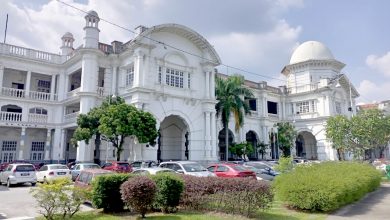Banana Wars
Food for Thought


Globally, bananas are the most commonly eaten tropical fruit either eaten raw or fried. We Malaysians have an innate fondness for bananas, most of us grew up in households where the sweet smells of the ‘pisang goreng’ frying for tea, brings out the fuzzy warm feel of home. Having such memorable thoughts of the banana, ever took a second to ponder how this mouthful of delicious goodness affects livelihood as a commodity?
Fundamentally, bananas are serious business. There are a number of articles and books that provide factual evidence that the banana isn’t a simple fruit. The article by Cohen provides a useful summary and background to the banana industry. The production and trading of bananas in the international front, which Malaysia is a part of, gives an insight into the complexities of the banana trade and its effects on humanity.
Although bananas may only look like a fruit, they represent a wide variety of environmental, economic, social, and political problems. The banana trade symbolises economic imperialism, injustices in the global trade market, and the globalisation of the agricultural economy. Bananas are also number four on the list of staple crops in the world and one of the biggest profit-makers in supermarkets, making them critical for economic and global food security. As one of the first tropical fruits to be exported, bananas were a cheap way to bring “the tropics” to North America and Europe. Bananas have become such a common, inexpensive grocery item that we often forget where they come from and how they got here.
— Rebecca Cohen, Global Issues for Breakfast: The Banana Industry and its Problems, The Science Creative Quarterly, Issue 3, September 07 – April 08
Peter Chapman, a writer and journalist in his book (Jungle Capitalists, Canongate Books, 2007) mentioned that many lives and jobs depended on the banana. Interestingly in the global scene, just 5 companies—Dole, Del Monte, Chiquita, Fyffes and Noboa—control some 80% of the international banana trade, according to Banana Link, a UK-based organisation campaigning for fairer and sustainable banana trade. Fair trade is often presented as a fair way to help banana growers, but when international trade is dominated by the wealthier nations and companies, poorer farmers and nations are often left with an uncertain future.
Cohen, details how workers are exploited by a “race to the bottom” where supermarkets demand lowest prices for consumers, which results in low wages for workers in plantations. Some workers work very long hours, sometimes exposed to hazardous chemicals, some which are often banned from nations with better ability to provide for worker safety, such as in the US and Europe. Child labour, gender discrimination and other problems accompany this drive for low consumer prices.
As consumers we must stand accountable for the influence we have in the supply and value chain. Remember the price we choose to pay affects the value chain. We, as consumers, have the power to ensure that fair trade is applied which respect fairer retail price, workers’ rights and minimise environmental damage. Choose to be informed and to not tolerate child labour, gender discrimination nor be party to unfair worker wages just to benefit from cheaper prices.
Please look up the following links for further details on this subject matter.
http://forcechange.com/15186/protest-doles-unfair-and-unsafe-labor-practices-on-banana-plantations/
http://www.makefruitfair.org.uk/get-involved/appeals/end-violation-women-s-rights-chiquita-dole-and-del-monte-plantations
http://www.theguardian.com/sustainable-business/banana-pricing-unsustainable-nature-uk
Readers’ comments welcome at chelvim@sunway.edu.my.


